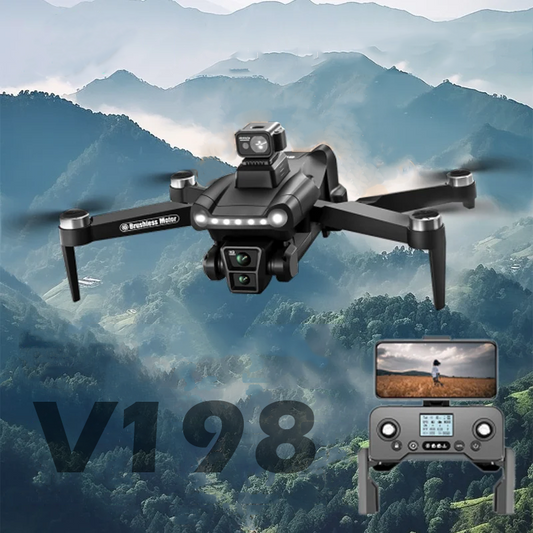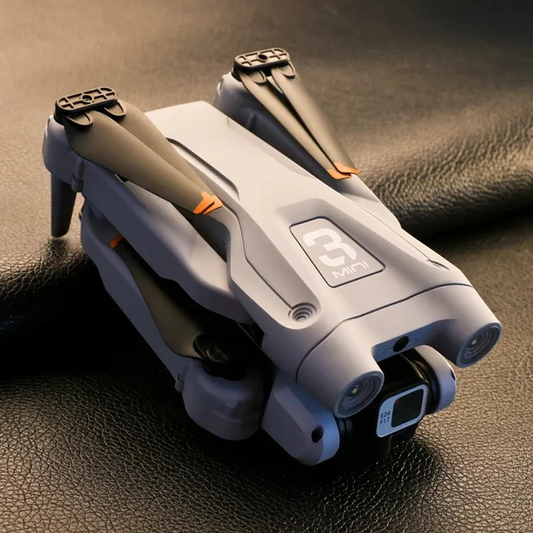Drones for Construction: Progress Tracking and Site Surveys

In the realm of construction, efficiency and precision are paramount. Traditional methods of monitoring progress and conducting site surveys are often time-consuming and labor-intensive. However, with the advent of drone technology, these processes have been revolutionized. Drones offer construction professionals a unique and effective way to track progress and survey sites with unprecedented detail and efficiency. Let's delve into how drones are transforming the construction industry.
Progress Tracking with Drones: One of the significant advantages of using drones in construction is their ability to track progress accurately and efficiently. Drones equipped with high-resolution cameras can capture aerial footage of construction sites at various stages of completion. This footage provides project managers and stakeholders with a comprehensive overview of the site's progress, including the placement of materials, equipment, and completed structures. By regularly capturing and analyzing this data, construction teams can identify potential issues early, make informed decisions, and ensure projects stay on track and within budget.
Detailed Site Surveys: Site surveys are essential in construction for planning, design, and compliance purposes. Traditionally, these surveys involve manual measurements and ground-based equipment, which can be time-consuming and prone to errors. Drones offer a more efficient alternative by conducting aerial surveys with precision and accuracy. Equipped with advanced sensors and imaging technology, drones can create detailed 3D maps and models of construction sites. These maps provide valuable insights into topography, elevation changes, existing structures, and potential obstacles. Such detailed information aids in better project planning, resource allocation, and construction management.
Enhancing Safety and Efficiency
Safety is a top priority in construction, and drones play a crucial role in improving safety practices. By conducting aerial surveys, drones can identify safety hazards such as unstable structures, debris accumulation, or unsafe working conditions. This proactive approach allows construction teams to address potential risks before they escalate, thereby minimizing accidents and ensuring a safer work environment for all personnel. Moreover, the efficiency gained from using drones in progress tracking and site surveys translates into cost savings, reduced downtime, and optimized resource utilization.
Environmental Impact: Another benefit of using drones in construction is their positive impact on the environment. Drones reduce the need for heavy machinery and ground vehicles typically used in traditional surveying methods. This reduction in equipment usage helps minimize carbon emissions and fuel consumption, contributing to a greener and more sustainable construction industry. Additionally, the precise data collected by drones allows for more efficient land use and construction practices, further minimizing environmental impact.
Regulatory Compliance: In many regions, construction projects must comply with stringent regulatory requirements regarding site surveys and progress tracking. Drones provide a reliable means of meeting these requirements by producing accurate and verifiable data. Construction teams can use drone-captured imagery and data to demonstrate compliance with environmental regulations, building codes, and safety standards. This documentation not only streamlines the regulatory approval process but also enhances transparency and accountability throughout the project lifecycle.
Future Trends
Looking ahead, the role of drones in construction is expected to expand further. Advancements in drone technology, such as improved battery life, enhanced sensors, and artificial intelligence capabilities, will enable even more sophisticated applications in progress tracking and site surveys. Integration with Building Information Modeling (BIM) and augmented reality (AR) technologies will further enhance project visualization and management. As construction companies continue to embrace digital transformation, drones will remain at the forefront of innovation in the industry.
Drones have emerged as indispensable tools in the construction industry, transforming how progress is tracked and sites are surveyed. From accurate aerial mapping to enhanced safety practices, drones enable construction professionals to work more efficiently, safely, and sustainably. As technology continues to evolve, drones will play an increasingly vital role in driving productivity, reducing costs, and improving project outcomes. Embracing drone technology is not just a trend but a strategic investment for construction companies looking to stay competitive in a rapidly evolving industry landscape.
Explore a variety of drones at our online drone store.
Happy Flying!









